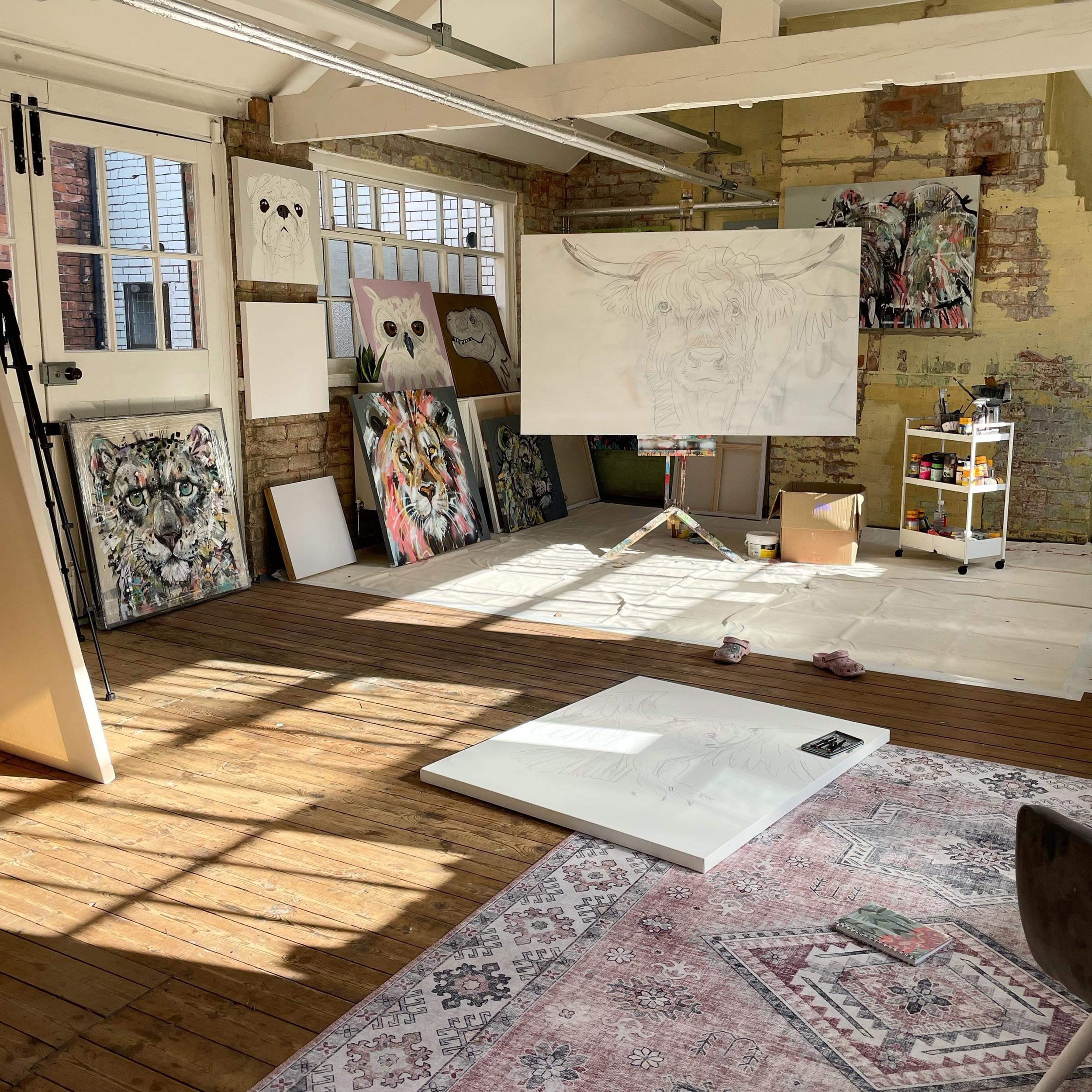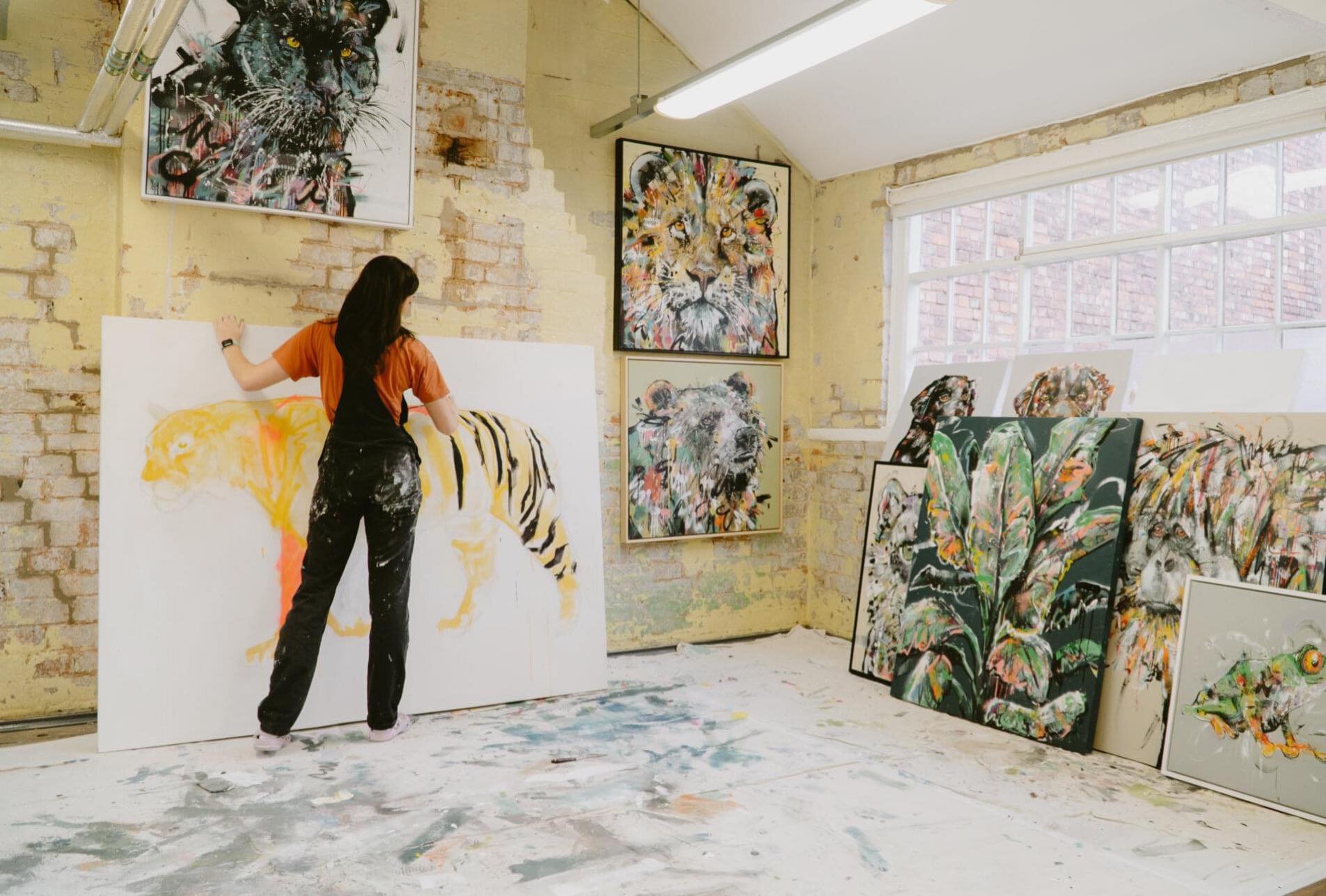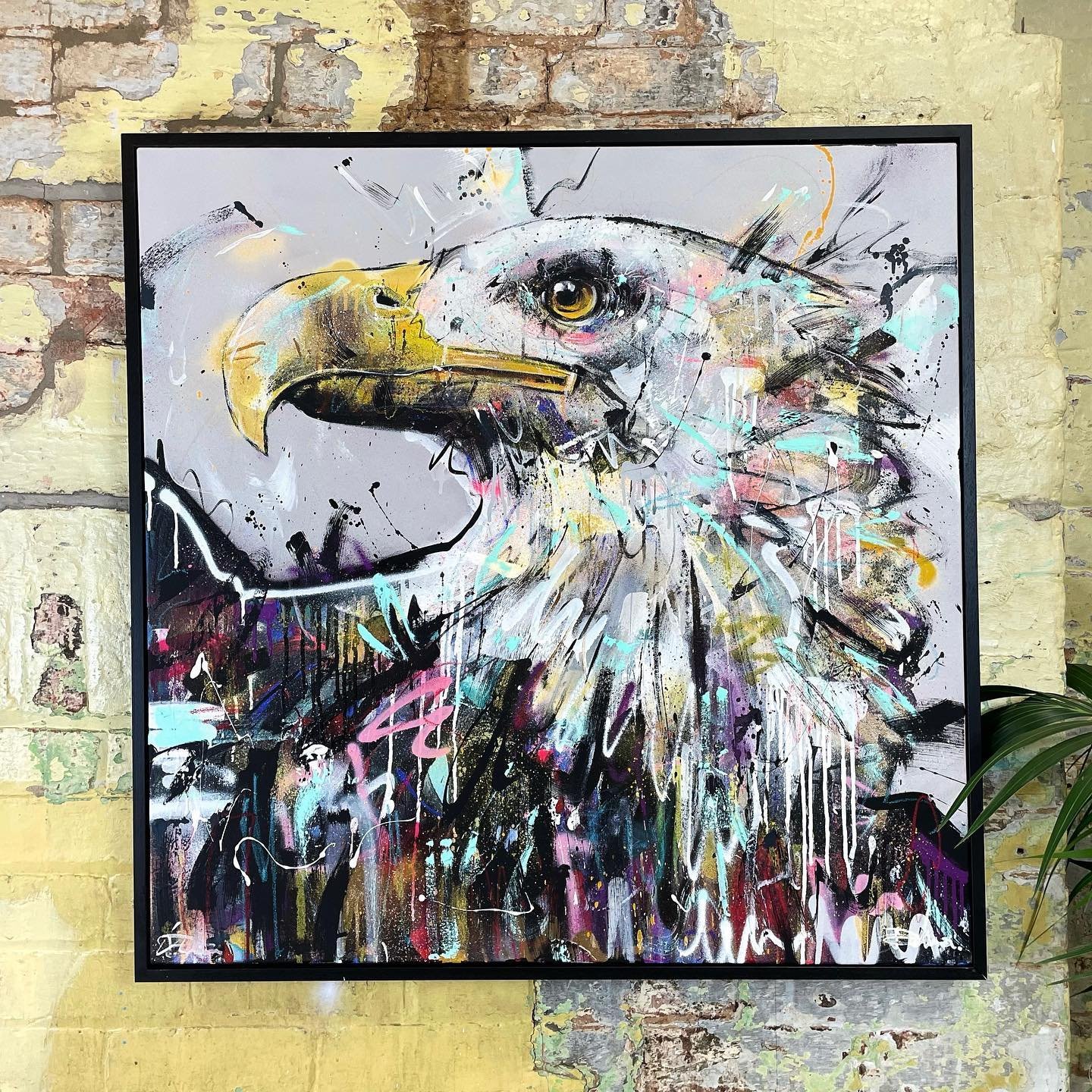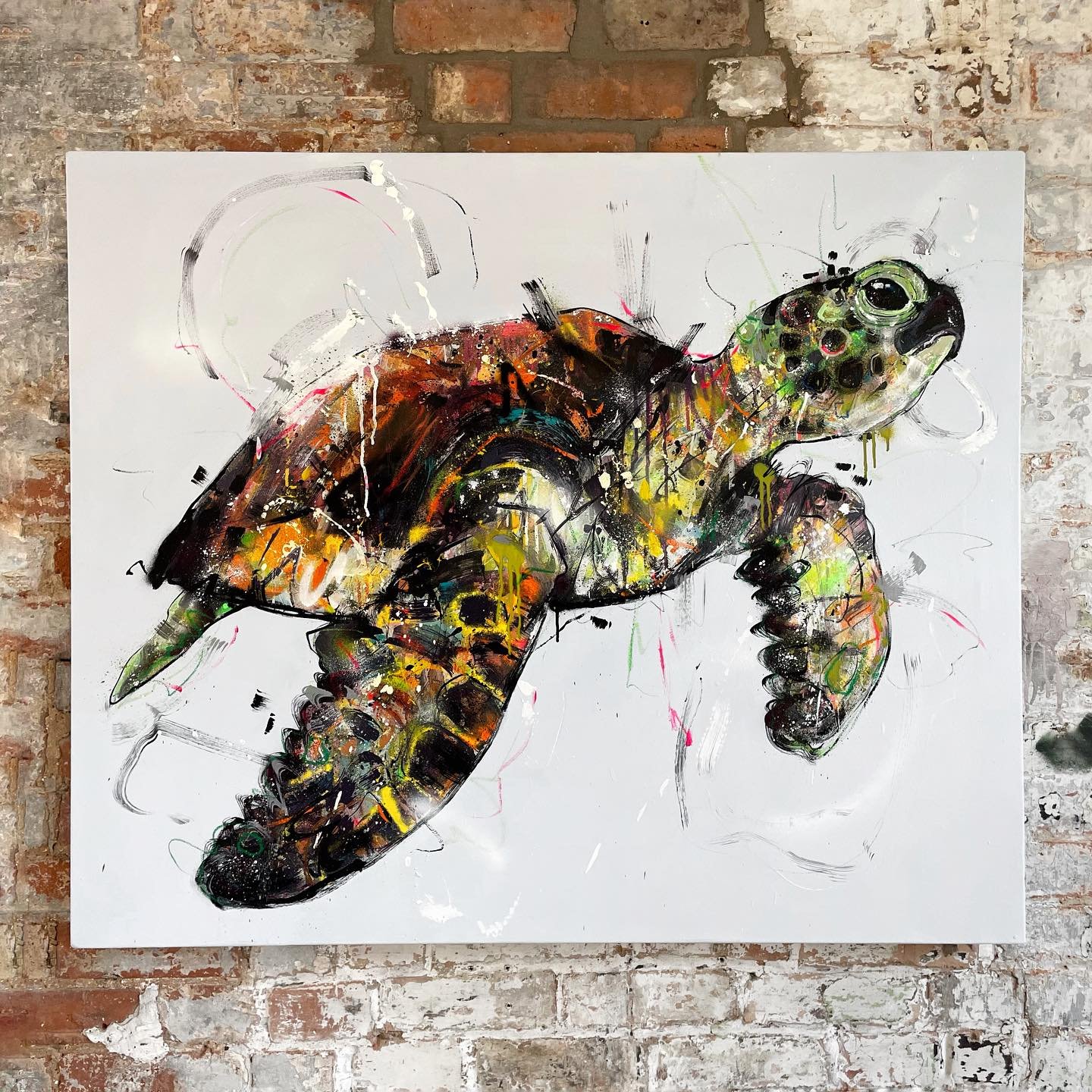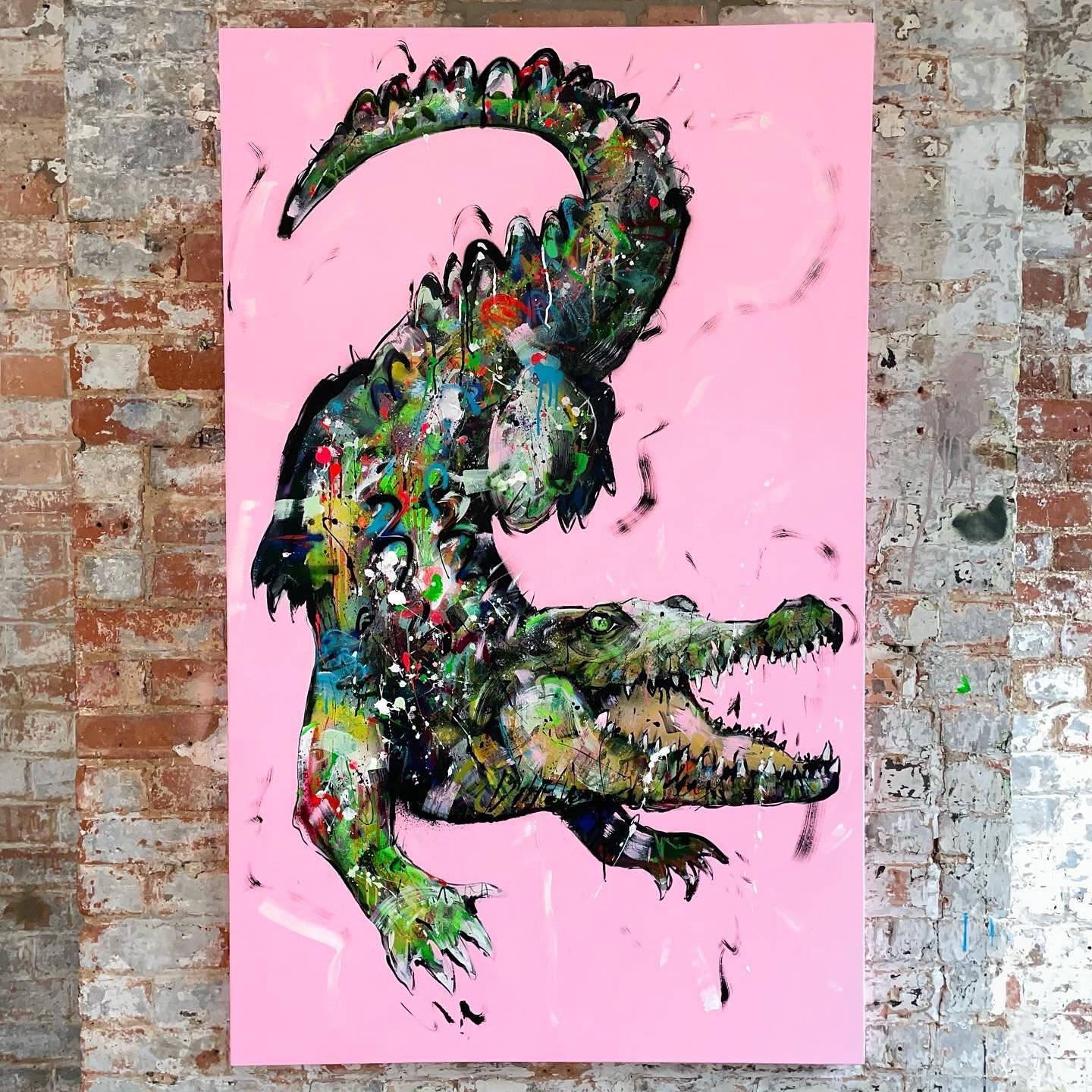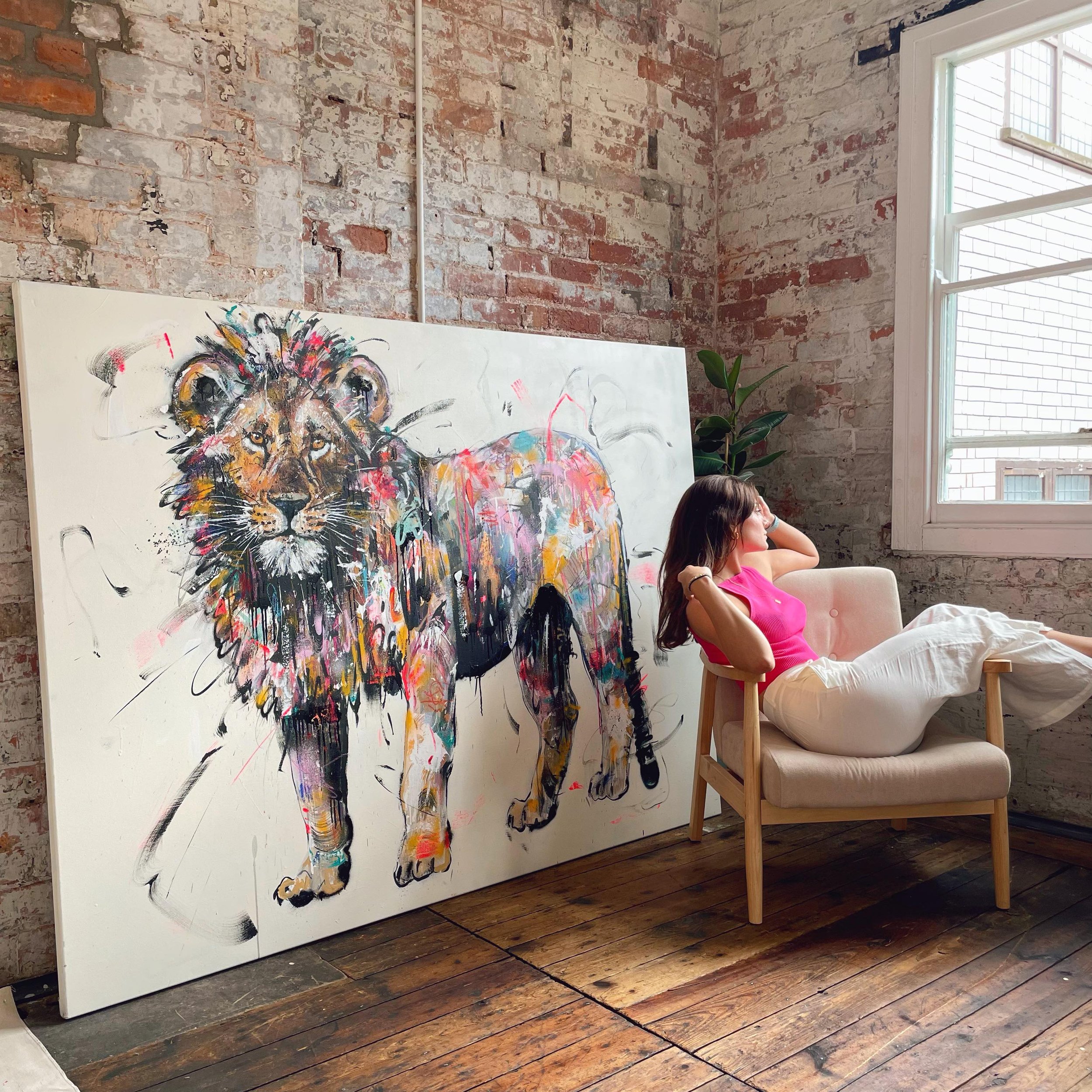ARTIST INTERVIEW: DANIELLE TOMLINSON
Danielle Tomlinson
After competing at Olympic trials and racing internationally, you decided to pursue a career as an artist. What originally ignited your passion for art? What sparked the career change?
Growing up I would paint or draw in my down time when I wasn’t swimming! When I went to university it was natural for me to put my artistic talents to good use and started selling paintings to peers and family. I left swimming and it was natural for me to look at what else I felt passionate about and to pursue that. Here we are 3.5 years later.
How have you been able to turn your passion into a successful business?
I have a lot of resilience; I fight for what or who I believe in and have the ability to take chances and chase what I want without an overwhelming fear or embarrassment of failure. I also believe, because I’m self-taught I didn’t have preconceptions of what it’s like to be or behave like an artist, so I guess I have a calling, then dreams, put in steps, nailed my why and story and it’s all coming into reality.
You have previously talked about your drive and determination stemming from partaking in competitive sports. Why are these characteristics important for an artist?
Because there’s lots of setbacks, I try not to get too het up about them, as wallowing over rejection isn’t productive. Also, it’s valid, art is subjective and not everyone will like your work – which is completely fine. I just keep at it!
What compels you to paint wildlife? How do your wildlife portraits reflect the narrative?
I’ve been drawn to wildlife since a child, I’ve always been in awe with nature. I try to reflect my past childhood, but also current personality as playfulness in my work. This also simultaneously serves the purpose of them being loud and vivacious, I want my work to demand attention from the viewer and reflect the importance of protecting our natural world also.
What inspires you to create? How do the titles of your work relate to the overall piece?
Being in nature, life experience and music are my three muses. Music though, I’m obsessed with. I have Spotify playing 10 hours most days at the least. Most my works titles are named after songs or poetry, so bonus points if anyone can guess the artists or writers! Now that’s a true reflection of my inner world!
I think the beauty of animals as a subject is that there are so many angles to them, from symbolism in our perceptions on the world, even how they’re portrayed throughout history or outlining current critical issues. I want to celebrate animals in every angle way in our human experience.
How does your work reflect you as an individual? What would you like to transpire to the viewer?
I like to put my own spirit into my works, I have often been described as energetic, bubbly. I like to try and be as positive as I can, that’s why my works are so colourful and have crazy splats and marks!
You have created many artworks, which piece is your favourite and why?
I recently painted an alligator; I’d say that’s my favourite just because it’s so obnoxiously loud! There was no holding back on size or vibrancy.
Who is your favourite artist? If they were sat next to you right now, what would you ask them? Do they have an influence on your work?
I have a few!!! But if I had to choose, just with how I’m feeling this instant, it would be Pichiavo. I’d ask them what their most important lesson was in their career so far! They haven’t inspired my own work directly, but I love their use of colour and how they have merged traditional sculpture with graffiti and modern architecture.
What has been your greatest achievement career so far as an artist?
Moving into my dream studio! But there’s so much left to achieve! My greatest achievement is yet to come!
Why do you think art is important in society?
I think art its sustenance. It’s how we share human experience. To know we’re not alone in what we feel, it gives us almost a grounding and reminds us of our mortality. It helps us understand our complexities, others experience but also historical or social events, etc. As a society it’s a crucial pillar to how we perceive our outer and inner worlds. It’s a necessity not a luxury. I’m not sure how the world would look without it. A world without expression sounds miserable.









